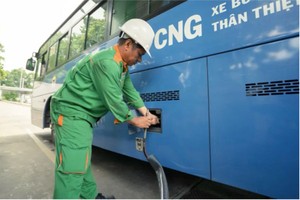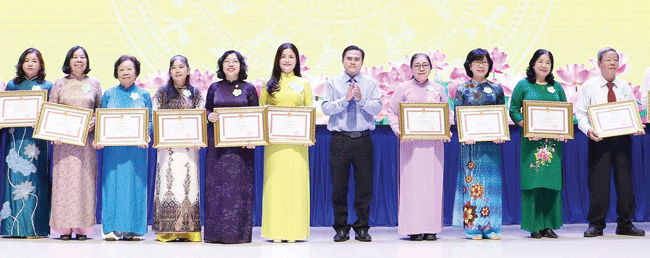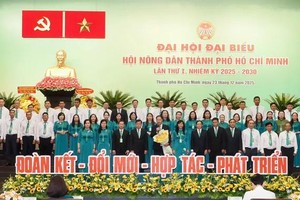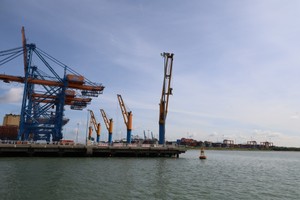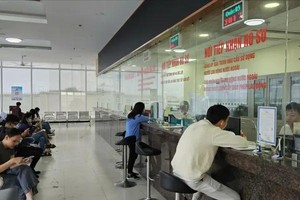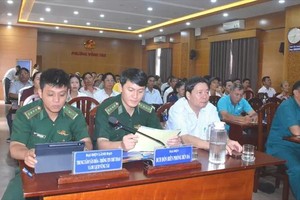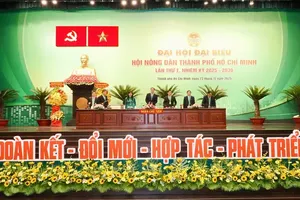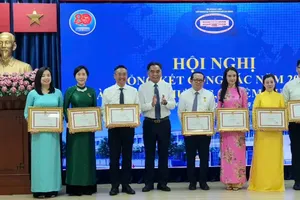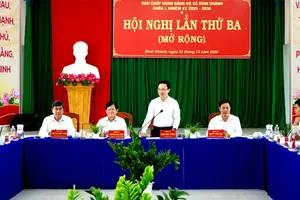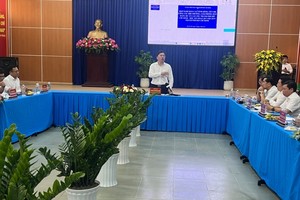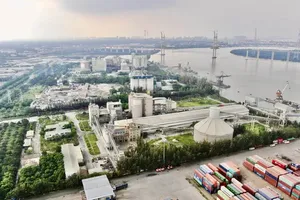
In a talk with reporters of SGGP Newspaper, he said that the agency has been actively consulting on synchronous solutions to support businesses and promote the digital economy in many fields.
The digital economy refers to an economic system that primarily functions through digital technologies, particularly focusing on electronic transactions conducted over the internet. Residents of Ho Chi Minh City are well-acquainted with this concept, as evidenced by their experiences with online shopping on platforms like Shopee, ordering food through GrabFood, scheduling medical appointments digitally, and settling utility bills using e-wallets.
Being one of the most dynamic digital economic hub in the nation, the southern metropolis has seen a widespread shift towards digital transformation to keep pace with emerging trends from local markets to major corporations. The digital economy not only enhances convenience for residents but also plays a crucial role in the city's economic advancement, said Director Thang.
Nevertheless, alongside these opportunities, challenges such as cybersecurity and the protection of personal data must be addressed. Looking ahead, Ho Chi Minh City is committed to further investing in digital infrastructure and assisting businesses with their digital transformation efforts, with the goal of creating a smart, modern, and sustainably developing urban environment.
Currently, both the General Statistics Office and the Ministry of Information and Communications are evaluating the digital economy's contribution to the city's Gross Regional Domestic Product (GRDP), resulting in varied outcomes. Specifically, the General Statistics Office reports that the digital economy's contribution to Ho Chi Minh City's GRDP has fluctuated between 12.62 percent and 14.65 percent in recent years.
The Ministry of Information and Communications presents higher figures, indicating contributions of 18.66 percent and 21.5 percent for the years of 2022 and 2023, respectively. Despite these discrepancies, both organizations recognize the significant impact of the digital economy on the development of Ho Chi Minh City.

To obtain more accurate and comprehensive data, the Department of Information and Communications of Ho Chi Minh City is actively coordinating with experts and related ministries and sectors to research and improve measurement methods to build a unified and transparent assessment system. This aims to have a clearer view of the contribution of the digital economy and thereby develop appropriate policies to promote the development of this field.
The Department of Information and Communications of Ho Chi Minh City clearly recognizes the important role of digital transformation in the development and competitiveness of small and medium enterprises.
Therefore, the Department of Information and Communications recommends that the municipal People's Committee implement three comprehensive solution groups including enhancement of the legal framework to promote and support the digital transformation efforts of small and medium-sized enterprises (SMEs), execution of a data management strategy and development of digital infrastructure to establish a robust foundation for the digital transformation journey of businesses; and creation of a network of consultants.
Additionally, the department will organize training programs and provide in-depth consulting on digital transformation tailored for SMEs.
Ho Chi Minh City is determined to promote digital transformation in economic sectors to bring many benefits to the city's economic development in the coming time. Each sector has its own requirements for infrastructure and information technology resources. Hence, coordination and integration between departments, sectors, localities and businesses are very important to ensure the success of the multi-sector digitalization process.
Being the permanent agency, the Department of Information and Communications is tasked with effectively coordinating and leading the digitization initiative. In the coming time, the department will provide guidance on the establishment and enhancement of the legal framework to foster a conducive environment for digital activities meanwhile enhancing the digital skills of our personnel remains a key priority.
Furthermore, the Department will offer technical support and advice to relevant units while implementing a monitoring and evaluation system to guarantee the effectiveness and sustainability of digital transformation efforts.
